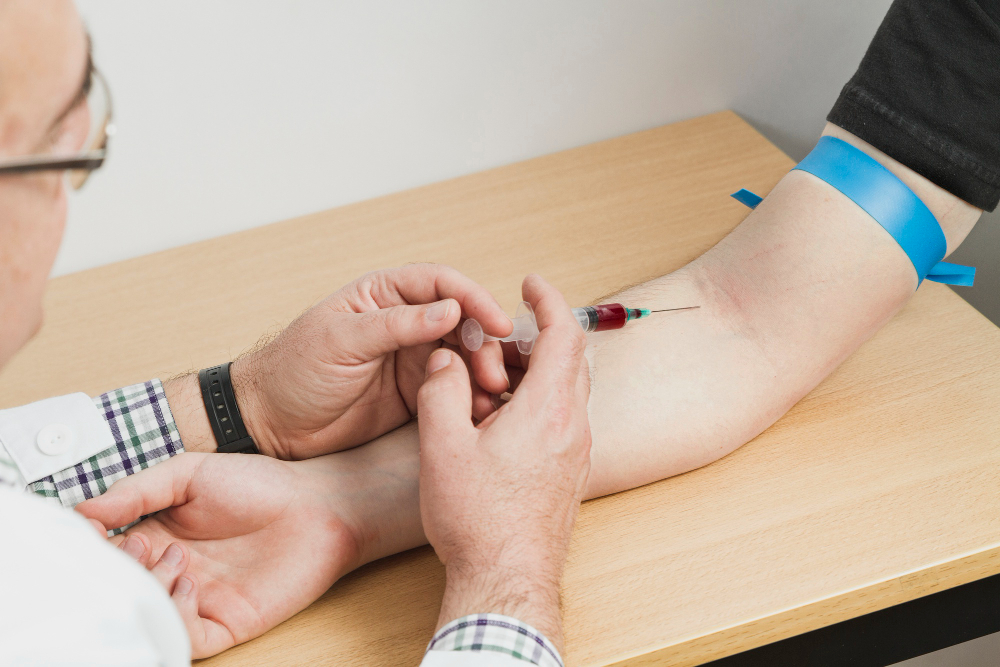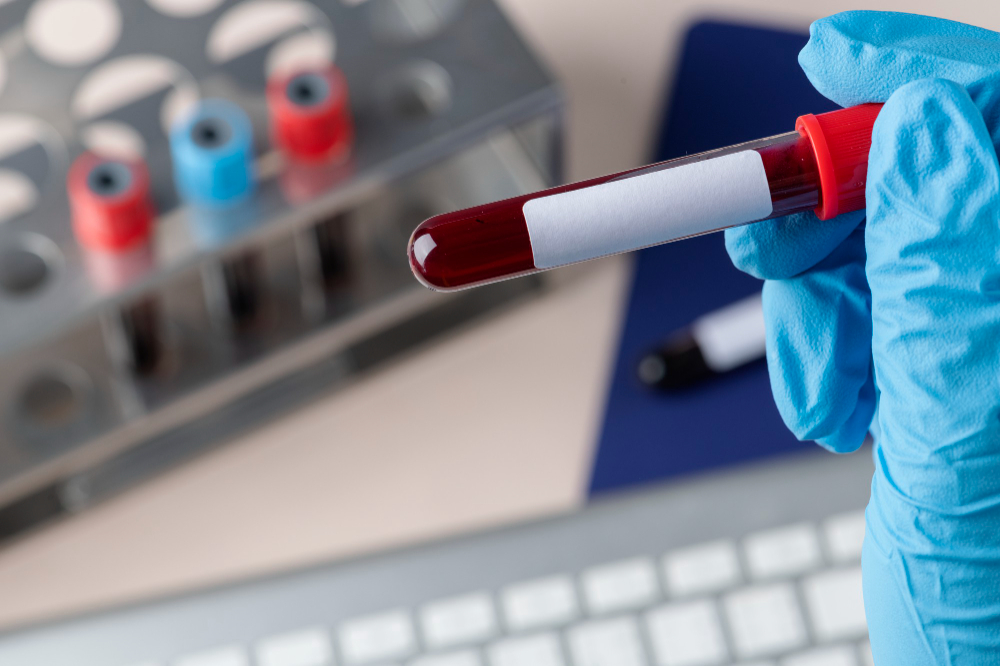Blood tests are a key pillar of modern healthcare, offering vital insights into our overall health and well-being. Whether you’re monitoring chronic conditions, checking for nutritional deficiencies, or assessing your risk for certain diseases, blood tests can provide a roadmap to better health. But with so many types available, it’s easy to feel overwhelmed.
This guide is here to simplify the process for you. By the end of this blog, you’ll understand the purpose of common and specialized blood tests, learn how to prepare for testing, and know when to consider getting tested.
Being informed empowers you to take charge of your health—so let’s get started.
Common Blood Tests
Blood tests can reveal a wealth of information about your body, but some tests are requested more frequently than others. Here are some of the most common ones and why they matter:
Complete Blood Count (CBC)
The Complete Blood Count (CBC) is a fundamental test often included in routine exams. It measures several components of your blood, including:
- Red Blood Cells (RBC): These carry oxygen throughout your body. A low count could point to anemia.
- White Blood Cells (WBC): A high or low count may indicate infection, inflammation, or even blood disorders.
- Platelets: These are essential for blood clotting. Abnormal levels can lead to clotting disorders or excessive bleeding.
- Hemoglobin and Hematocrit: These help assess oxygen-carrying capacity and hydration levels.
Why it’s important: A CBC can detect a wide variety of conditions, from infections to more serious illnesses, such as leukemia. It provides a snapshot of your overall health.
Basic Metabolic Panel (BMP)
The Basic Metabolic Panel (BMP) analyzes your blood for eight critical substances, including calcium, glucose, and electrolytes like sodium and potassium. It gives insight into:
- Kidney Function: By measuring creatinine and blood urea nitrogen (BUN).
- Blood Sugar Levels: High or low levels can hint at diabetes or hypoglycemia.
- Electrolytes and Acid-Base Balance: Essential for proper muscle, nerve, and heart function.
Why it’s important: A BMP is commonly used to check for kidney issues or monitor conditions like high blood pressure.
Lipid Panel
The Lipid Panel evaluates your cholesterol levels to understand your heart health. It measures:
- Total Cholesterol
- LDL Cholesterol (“Bad” Cholesterol)
- HDL Cholesterol (“Good” Cholesterol)
- Triglycerides
Why it’s important: A lipid panel helps assess your risk for heart attack, stroke, and other cardiovascular diseases.
Specialized Blood Tests
Beyond the basic tests, specialised blood tests offer deeper insights into specific aspects of your health. Best Blood cannulation training course which will gain expectation high.
Thyroid Function Tests
Your thyroid regulates metabolism, energy levels, and overall hormonal balance. A thyroid panel typically measures:
- TSH (Thyroid Stimulating Hormone)
- T4 (Thyroxine)
- T3 (Triiodothyronine)
What it can detect: Hypothyroidism, hyperthyroidism, or other thyroid disorders.
Kidney and Liver Function Tests
These tests evaluate how well your kidney and liver are working to filter waste products from your blood:
- Kidney Function Tests: Measure levels of creatinine, BUN, and electrolytes.
- Liver Function Tests (LFTs): Check for enzymes like ALT and AST.
What it can detect: Conditions like hepatitis, cirrhosis, or chronic kidney disease.

Hormone Panel
This test assesses hormone levels, which regulate many bodily functions including reproduction, sleep, and mood:
- Sex Hormones: Such as estrogen, testosterone, and progesterone.
- Stress Hormones: Cortisol is often measured to understand stress and adrenal function.
Why it’s important: Hormone imbalances can lead to issues such as infertility, fatigue, or mood disorders.
How to Prepare for a Blood Test
Proper preparation ensures the most accurate results from your blood test. Follow these general tips:
- Follow Fasting Guidelines: Some tests, like a BMP or Lipid Panel, require fasting for 8–12 hours. Confirm with your healthcare provider.
- Hydrate: Drink plenty of water to make it easier for the technician to draw your blood.
- Avoid Certain Medications: Some medications, including over-the-counter drugs, can affect your results. Always check with your doctor beforehand.
- Stay Calm: Stress can sometimes impact results, so try to relax before your test.
Understanding Your Results: A General Guide
Once you’ve completed a blood test, your results might look like they’re in a foreign language. Here’s how to get started with making sense of them:
- Reference Ranges: These are the normal ranges for each component. If your results are outside the range, it may warrant further investigation.
- Flagged Values: Values marked as “high” or “low” indicate that these levels are abnormal.
- Consult Your Doctor: Always discuss your results with a healthcare professional for a full interpretation, especially if multiple values fall outside the normal range.
Remember, out-of-range results don’t always mean something is wrong. Factors like hydration levels or recent meals can temporarily affect your numbers.

When and Why to Get Blood Tests Done
How often should you get a blood test? The answer depends on your age, health, and risk factors. Below are some general guidelines:
- Routine Check-Ups: Healthy adults should aim for a comprehensive bloodwork panel annually.
- Chronic Conditions: Frequency may increase for those managing diabetes, high blood pressure, or other ongoing conditions.
- Specific Symptoms: If you’re experiencing fatigue, sudden weight changes, or other troubling symptoms, your doctor may recommend blood tests to pinpoint the cause.
- Preventive Health: Even if you’re feeling well, regular blood tests can detect early warning signs of potential health issues.
Being proactive about your health can prevent minor concerns from becoming major problems.
Proactive Steps to Better Health
Blood tests are much more than a simple diagnostic tool—they’re a proactive approach to managing your health. They help identify early warning signs, monitor ongoing conditions, and give you the information you need to make healthier choices. By understanding the different types of blood tests and their purposes, you’ll feel more confident and informed about your own healthcare.
Scheduling regular tests, consulting healthcare providers, and staying informed are just a few ways to stay on top of your well-being. Remember, your health is in your hands—stay proactive.
For more insights into managing your health, subscribe to our newsletter or contact a healthcare provider for personalized advice.





















